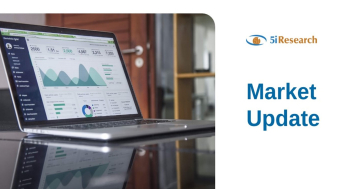This article originally appeared in the National Post, My 24, 2014. To see it in is original form, click here.
We all know that management and other fees are some of the main reasons mutual funds constantly underperform, but another reason that gets far too little discussion is that managers trade way too much.
Dynamic Power Small Cap Fund, for example, turned its portfolio over 29% in 2013, down from above 70% in 2011. That’s actually not too bad, we have seen fund turnover well in excess of 100%, meaning a mathematically complete portfolio switch within a 12-month period.
Trading costs investors in terms of bid/ask spreads, taxes and market impact. But if it is so bad, why do fund managers continue to trade excessively? We came up with five reasons:
Managers need to justify their high compensation
Mutual fund managers get paid a lot, more than a lot of doctors. To justify their high salaries and large bonuses, many managers simply feel the need to trade actively in order to justify their pay.
Imagine not trading, kicking back with your feet on your desk and just watching your fund? How will that go over with your boss paying you up to $1-million in order to manage that fund? An active manager can point to how busy they are instead.
Many fund managers are closet indexers
Face it, 90% of funds simply follow a market index. A manager's big decision of the day is often something like whether to own a 4% position in BCE, or to really stick their necks out with a 4.25% position in BCE.
But as an index changes, with additions or deletions, a manager has to keep his/her fund in line with the adjustments. This can create excessive trading on a fund that does not really accomplish much. Many managers will buy stocks just because they are in the index, and not because they are good companies.
Many fund managers watch their peer group too closely
Similar to the two points above, many fund managers need to watch their competition closely. If a competing fund owns security XYZ Corp., then maybe it should be bought.
If managers underperform their peer group by too much, then both their performance and salary will be brought into question: How come our competition owned that big winner and we didn’t?
The result? More stock trading, as fund managers fall all over themselves to buy the same companies.
Fund flows cause portfolio trading at the exact wrong times
I have experience with this, and it hurts. When markets are strong and your fund performance is great, the money pours in. Most managers can’t hold a lot of cash, so they need to keep buying, even as the market rises.
When the market rolls over and stock prices collapse, guess what? Everyone wants their money out, so you are forced to sell stocks to meet redemptions, even though you may not want to.
Fund flows that are not under your control are a big reason why turnover can be so high. With your personal investments, assuming you haven't got everything you own in the stock market, this kind of forced trading reaction simply does not exist.
Managers are constantly bombarded with new investment ideas
A fund manager gets bombarded every day with new investment ideas presented to them by competent, highly paid experienced executives who know what they are doing.
Glossy presentations, fancy lunches, field trips and the like are all used to convince managers to buy a stock. The pressure can be intense, especially on new deals and financings.
If you succumb, then usually something else in your fund needs to be sold to raise the money for the new great investment. The result: more trading.
Of course, not all ideas that sound great are actually great. Managers often need to sell their mistakes at a later date, so more trading ensues.
Personal portfolios can beat mutual funds. We have beaten up funds on their high fees enough, but excessive trading is just as bad. If you have a fund with a turnover of more than 50%, ask: Is all that trading is really necessary? Is it actually helping me?
The answers are probably no and no.





Comments
Login to post a comment.